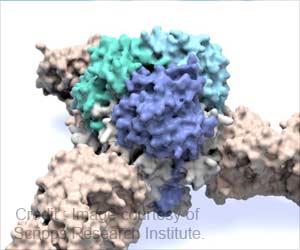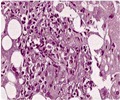Highlights
- A mixture of three monoclonal antibodies was able to neutralize different strains of Lassa virus (LASV) in vitro
- The cocktail protected non-human primates from lethal doses of LASV in a prophylactic treatment model
- The study highlights the potential of using monoclonal antibodies as a new therapy for neglected tropical diseases
About lassa fever
Go to source). Lassa fever can lead to severe symptoms such as fever, bleeding, and organ failure and has a high mortality rate. Currently, there are no approved vaccines or specific treatments for Lassa fever. In this study, Li et al. evaluated the effectiveness of a cocktail of three monoclonal antibodies (mAbs) in protecting against Lassa fever (2✔ ✔Trusted Source
Lassa Fever
Go to source).
How was the Study Conducted?
A monoclonal antibody (mAb) cocktail is a mixture of two or more monoclonal antibodies that target different epitopes of a specific pathogen or disease. This approach is used to enhance the efficacy of treatment by targeting multiple parts of the pathogen, reducing the likelihood of drug resistance and increasing the neutralizing activity. In the case of the Li et al. study, the mAb cocktail was generated using a humanized mouse model. The mice were immunized with a LASV glycoprotein, and B cells that produced LASV-specific antibodies were isolated and fused with a myeloma cell line to produce hybridoma cells. The resulting hybridoma cells were screened for their ability to produce mAbs that could neutralize LASV. Three mAbs that targeted different epitopes of the LASV glycoprotein were selected and used to generate the mAb cocktail.prophylactically to animals at high risk of exposure to LASV. The animals were then challenged with a lethal dose of LASV 24 hours later to evaluate the protective efficacy of the mAb cocktail.
Research Population
The research population in this study was non-human primates, specifically cynomolgus macaques. These animals were selected as a model for Lassa fever because they are susceptible to LASV infection and exhibit similar symptoms to humans.The animals were housed in a Biosafety Level 4 (BSL-4) facility to ensure the safety of the researchers and prevent the spread of LASV outside of the laboratory.
All animals that received the mAb cocktail survived, while the control group that received a placebo all the animals died.
While non-human primates are not a perfect model for human disease, they are a useful tool for evaluating the safety and efficacy of new treatments before they are tested in humans.
Conclusion
The study demonstrated the potential of using a combination of mAbs to protect against Lassa fever. The researchers showed that a cocktail of three mAbs was able to neutralize different strains of LASV and protect non-human primates from lethal doses of the virus. The results suggest that the mAb cocktail could be developed as a prophylactic treatment for individuals at high risk of exposure to LASV. The study also highlights the importance of developing new therapies for neglected tropical diseases such as Lassa fever.References
- About lassa fever - (https://www.who.int/health-topics/lassa-fever)
- Lassa Fever - (https://www.cdc.gov/vhf/lassa/index.html)
Source-Medindia














